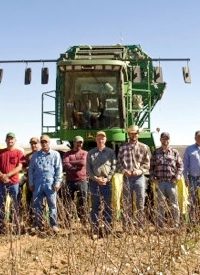
On February 16, 1887, President Glover Cleveland vetoed the Texas Seed Bill, a piece of legislation that would have helped suffering farmers in the American West. First, he recognized that the Constitution did not delegate any such powers to the federal government. Second, the President believed the American spirit to be far more altruistic and generous than the federal government and felt assured that the American people would use the opportunity to exercise their charitable spirit.
In his veto, Cleveland noted:
The friendliness and charity of our countrymen can always be relied upon to relieve their fellow citizens in misfortune. This has been repeatedly and quite lately demonstrated. Federal aid in such cases encourages the expectation of paternal care on the part of the government and weakens the sturdiness of our national character, while it prevents the indulgence among our people of that kindly sentiment and conduct which strengthens the bonds of a common brotherhood.
Cleveland’s sentiments were confirmed when private citizens donated ten times more to the Texas farmers than the amount legislated in the vetoed bill.
Over a century later, the charitable American spirit continues to be demonstrated on a regular basis, and there is no better example of that than in Wellington, Texas, where 17 residents pitched in to help a fellow farmer harvest his crops after an October car wreck rendered him unable to work.
According to the Amarillo Globe News, “The Oct. 16 accident left 65-year-old Wellington farmer Dan Langford with a pelvis broken in multiple places, a jaw broken in two places, a fractured right leg and a lacerated spleen, among other injuries.”
Following the car accident, 17 residents convened to harvest about 250 acres of irrigated cotton. The News continued, “Five cotton strippers and five cotton module builders were used to finish the acreage.”
In response to the overwhelming abundance of help he received from his fellow townsmen, Langford — who has been advised to stay off his feet for approximately eight weeks — observed:
It just awed me. I just couldn’t believe that they were going to do that … especially since they had irrigated cotton that needed to be pulled too. I just amazed me.
The residents contend, however, that they were merely fulfilling their neighborly obligations.
“That’s just the way it should be,” remarked Tommy Coleman, who, alongside his son Rusty, helped lead the group. “That’s just part of being neighbors.”
He added, “In the farming community, we know each other, so we have a tendency to help each other when somebody gets in trouble. We know that’s our livelihood, so it’s sort of a natural thing to do.”
Langford’s wife, Janise, however, asserts that the neighbors’ actions were heroic. “What people don’t understand is this … when farmers get paid [is] when they harvest their crops. It was like this huge weight was lifted. They just came in and took a lot of stress off of Dan.”
And despite the neighbors’ modesty, their generosity will not be forgotten.
“The whole community has just wrapped their arms around us. We really appreciate it,” Langford declared.
Photo: Amarillo Globe News




